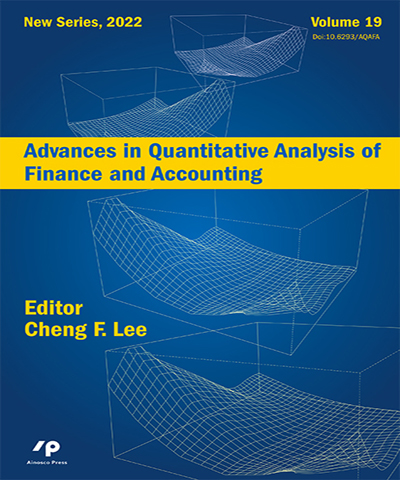
Advances in Quantitative Analysis of Finance and Accounting
Center for PBBEFR & Ainosco Press,正常發行
選擇卷期
- 期刊
Agency theory provides a clear rationale for why chief executive officers (CEOs) should be at least partially compensated on the basis of firm performance relative to the performance of other firms. Yet, relative performance evaluation (RPE) is not widely employed and we are left with the question of why. Using firms that actually employ RPE we test whether cross-sectional differences in hypothesized RPE related costs and benefits influence the likelihood that firms employ RPE. These RPE related costs and benefits are associated with proxies related to firm and industry characteristics. We find RPE is more likely to be used (1) when the firm's stock beta (measured relative to its industry's return rather than market return) is high, (2) in competitive industries, and (3) when industry sales growth is low. We find very weak support for increased RPE use when there are a large number of firms in the industry. These findings are consistent with firms taking RPE related costs and benefits into consideration when deciding whether to employ RPE. Furthermore, our finding that RPE is used in competitive industries and is found among industries experiencing low sales growth suggest that strategic interactions in the product market are not significant in the decision of whether to employ RPE. Finally, we find that the primary driving force behind the positive relation between beta and RPE is the significantly positive correlation between firm return and industry returns. Neither the standard deviation in industry returns or firm returns is significant in explaining RPE use.

